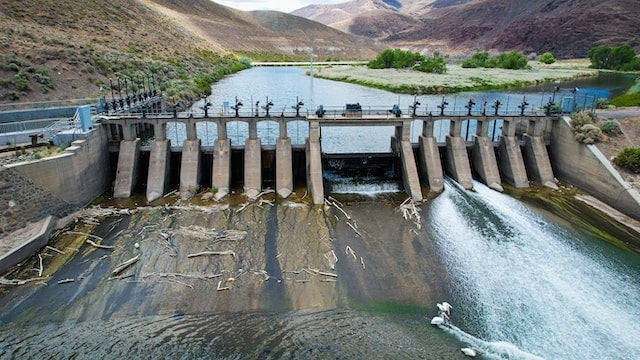
Water is the life force of humanity. For over 130 years, water has powered Canada from coast to coast – providing clean, renewable, affordable and abundant power for businesses, homes, technology, electric vehicles, and more. Today there are over 550 hydropower facilities across the country, powering over 60 per cent of Canada’s electricity needs.
Energy transition is one of the most urgent and complex challenges on the path to Canada’s resilient economic future. Significant electricity expansion is central to its success. As the country grapples to meet net zero carbon emissions by 2035, hydropower producers are ready, with the knowledge, projects, and technology to tackle one of the most important issues of our time. Hydropower is an essential player in enabling and fueling Canada’s clean energy transition.
Advocating for water power
WaterPower Canada (WPC) is the national non-profit trade association dedicated to representing the waterpower industry. Its many members span the breadth of the sector, including hydropower producers, manufacturers, developers, engineering firms, and other organisations.
WPC represents more than 95 per cent of the waterpower installed capacity in Canada, advocating for the responsible development and use of waterpower to sustainably meet the country’s electricity needs, today and into the future.
Multitude of opportunities
In response to the federal government’s commitment to achieve a net-zero emissions electricity supply by 2035 and a net-zero economy by 2050, WaterPower Canada is commissioning four research projects. These will explore opportunities to support the increase of installed capacity of hydropower in Canada from almost 85,000MW at present to 100,000MW by 2035, and beyond. These include white papers on electricity generation costs by source; grid services of hydropower generation, storage, and transmission in Canada; and technical and economic potential assessments around pumped storage hydropower, and hydropower refurbishments and redevelopments.
“Many hydropower projects in Canada are due for life extension investments,” says Carolina Rinfret, WaterPower Canada’s new President and Chief Executive Officer. “We encourage our industry to consider how we maximise these investments to deliver the most to our future energy supply.”
Whether it’s through enhancing existing projects or developing new greenfield ones, Canada could surpass the 100,000MW mark of installed capacity by 2035 – a considerable and rare accomplishment. Canada has a wealth of untapped hydropower potential. Perhaps the biggest challenge the industry faces is accepting that these climate targets are only 12 years away. Meeting the country’s ambitious goals will require collaboration from multiple industries, careful planning, and the gumption and tenacity to get started right away.
Encouraging hydropower employment
Hydropower is essential in powering our lives. The waterpower industry is an economic powerhouse with potential growth and opportunity. Already the largest employer among the various renewable power sectors, hydropower accounts for 48,790 direct and indirect jobs in generation alone. Meeting Canada’s climate goals will require more brainpower, people power, and innovative solutions.
“With so many opportunities for creative problem solving, hydropower is a great sector to work in,” says Rinfret. “We’re encouraging educational institutions and young professionals to take a closer look at hydropower as they develop their careers.”
Hydropower is as Canadian as it gets. The industry provides many economic, social, and environmental benefits throughout the country. Ensuring Canadians understand these benefits and the integral role water plays in the energy transition is a crucial part of the country’s energy story. The hydropower industry has been working toward this pivotal moment of supporting the energy transition for over a century. Waterpower is well-positioned to meet and bolster Canada’s energy security opportunities and necessary ambitious climate targets that lie ahead.
“We encourage and welcome hydropower companies and anyone working in the broader renewable sector to join us in Toronto for Canadian Waterpower Week this September,” says Rinfret.
This article first appeared in International Water Power magazine.






